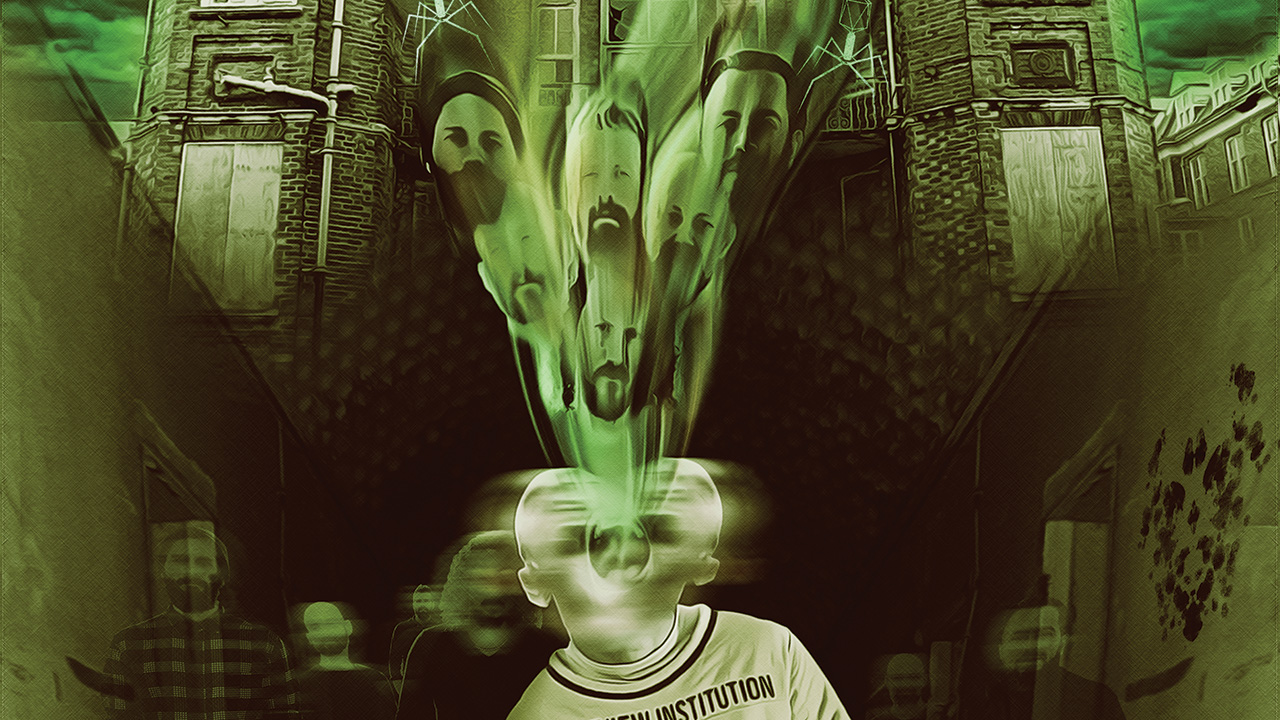It was mathematician ET Bell who said that time makes fools of us all, though history will surely judge Haken’s appositely titled sixth album as being so on the money it’s uncanny. Virus was written on their last tour and will no doubt be best enjoyed in lockdown. And while Prog doesn’t wish seclusion on anyone, it’s probably best you digest the latest Haken album while consumed by concentration; there’s a lot to take in.
Never backwards in coming forwards creatively, Haken have changed lanes almost
at will before coming to fruition with 2013’s dizzying The Mountain. That they chose to follow that with the playful electronica on the 80s tinged Affinity album three years later says as much about their self-confidence as it does their desire not to be boxed in.
In 2018 they released Vector and redefined what Haken were again: a dense mix of classic and contemporary nods to prog’s florid history and now, with an album mostly written and recorded on tour in support of Devin Townsend across Europe and North America, they’ve rewritten their story again. Simply put: this is Haken’s best record yet. Much like their former touring partner, Haken have redefined their own musical parameters by refusing to have any.
“Since releasing The Mountain,” drummer Ray Hearne says of this record, “one question has been asked of us time and time again: ‘Who is the Cockroach King?”. Which seems a curious question at best, but for those that missed it, Cockroach King was one of the standout tracks on The Mountain. Lyrical and complex, with some lovely vocal interplay, think pastoral folk prog with booster rockets and you’re close.
That reference to The Mountain isn’t the only callback here. It soon becomes clear
just how closely entwined Virus is with the previous Vector album. Where Vector focused on a catatonic, institutionalised patient in the 1950s, Virus moves the story along a full 20 years, haunting the now empty corridors of the Mountview Institution run to wrack and ruin. There’s no describing the breadth of the storytelling on display, or the far-reaching arc Virus describes. You simply need to make space when you’re making music on this scale.
Opener Prosthetic, which, we’re assured, bridges the gap between this album and its predecessor, places the virus in sharp relief, detailing its crushing effects – biological, psychological, technological, and that’s just plucking three from the (infected) air – in
a scintillating six minutes of sheer brute force. Don’t be fooled, Virus travels from the ridiculous (sounding) to the sublime, and touches on most of the spectrum in-between, but they open with an intensity that would make Pantera stop and stare.
Proving that the sum is greater than its parts, Virus comes in roughly two halves, five songs leading to the five-part Messiah Complex suite. The album finally rounded off by the lilting musical footnote that is Only Stars. Fans of The Mountain will faint away like a Victorian woman in a tight corset given the familiar musical tropes that record has revived for Messiah Complex, not least the glorious nod to Gentle Giant during Messiah Complex IV: The Sect, if Gentle Giant had hired Steve Vai to perform the guitar parts.
But we’re getting ahead of ourselves. As a great man once said, it’s the journey, not
the destination and, quite simply, what a trip Virus is. This writer wishes that Tool might have managed to write a song like Invasion to lift their underwhelming Fear Inoculum album: stuttering and jagged and filled with dread, yet still soaring and full of grace.
If it weren’t for the sprawling Messiah Complex, the listener would be hard pushed to find a better track on Virus than the 10-minute Carousel. It begins with a remote vocal before growing exponentially until, as was once said of TS Eliot, it floods the frame. Even as it eddies, rises and falls, it still holds on to its structure: it’s still definable as a song. That’s quite a skill when a tune covers as much terrain as this. That they manage to dwarf even this with the magical Messiah Complex is testimony to Haken’s skill and sheer bravura. Even more so when you consider this record was written and arranged in a makeshift studio on their tourbus.
Trust Prog when we say you don’t often stumble across gold in a tour bus lounge, unless you consider old socks some kind of manna. And it’s a ceaseless kind of magic, a universe in which one can get lost time and time again as the story reveals itself across prog totems old and new. Rich and vivid in idea and execution, suffused with melody and filled with light and shade, all consuming, as it draws the listener in, shedding light on another unseen world.

